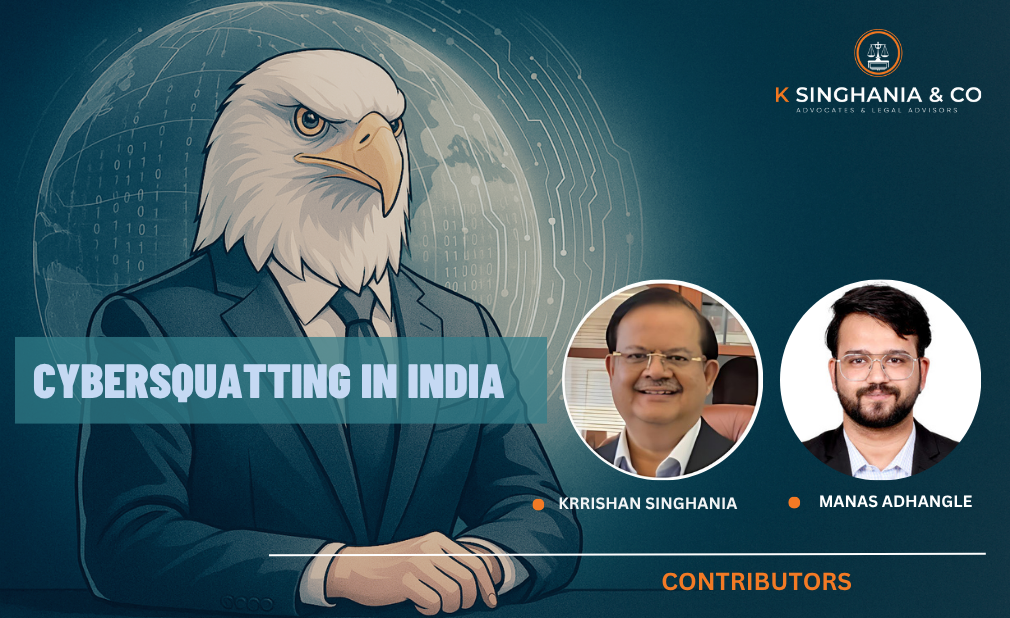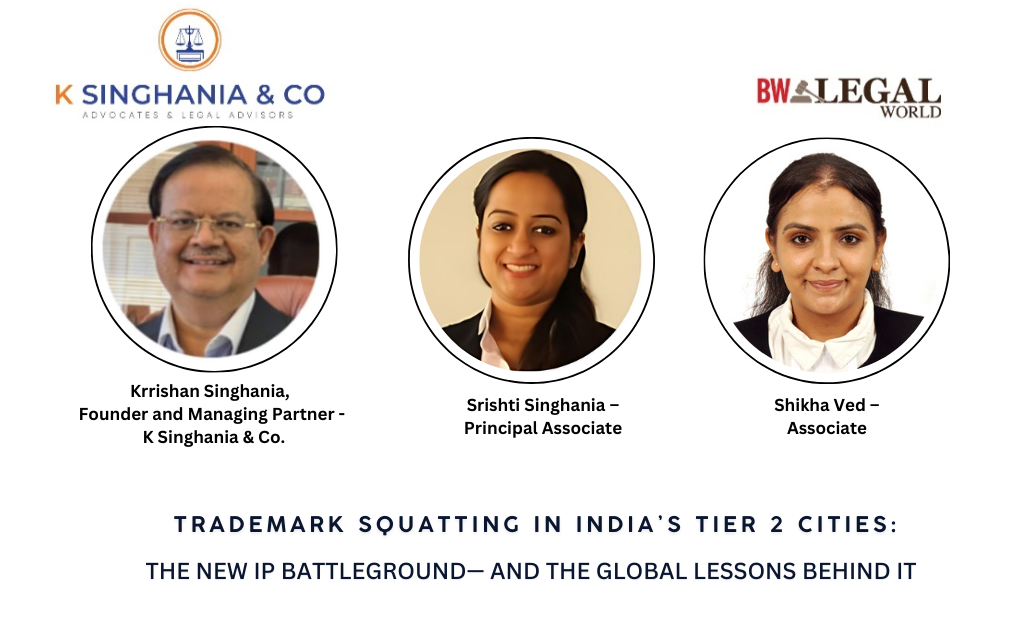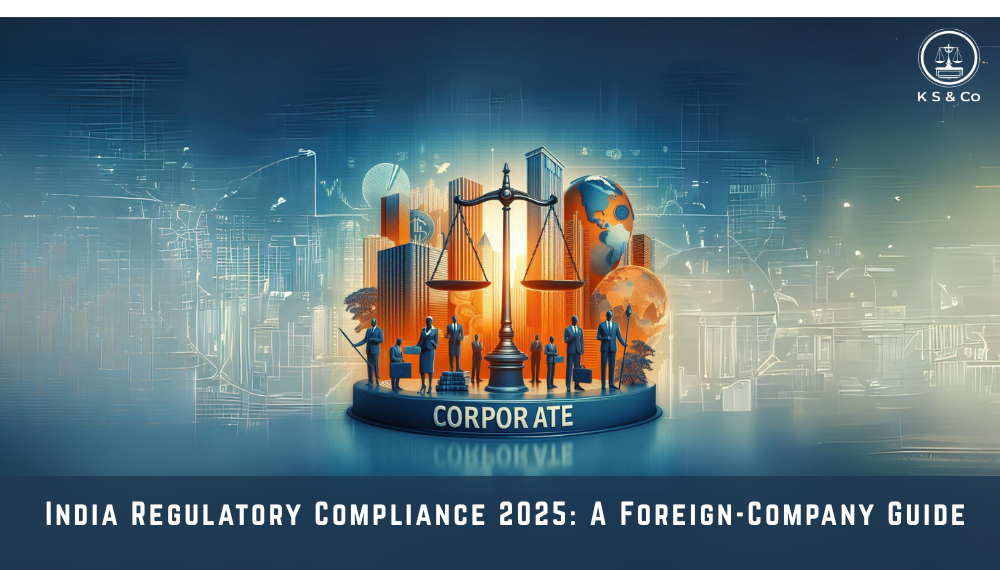M/S Janta Associates & Co. Vs. Indian Oil Foundation & Anr.
Petitioner – M/s Janta Associates and Co. Ktd. (JACL)
Respondent 1 – Indian Oil Foundation (IOF)
Respondent 2 – EIL
Court- Delhi High Court
The Petitioner filed a petition under S. 11 of the Arbitration and Conciliation Act 1996 (“Arbitration Act”) before the Delhi High Court for appointment of a sole arbitrator in accordance with the General Conditions of Contract (GCC).
Facts of the case:
IOF appointed EIL as the Engineering Project Construction Management partner to complete the work of developing infrastructure facilities in Patna (Project).
EIL issued an Open Tender Notice inviting e-bids for execution of the Project, which JACL submitted its bid for and won. Consequently, a Letter of Acceptance (LoA) was issued.
The parties entered into an agreement (Contract) and a time period of twelve months was fixed to complete the project starting from the date of issuance of LoA.
Several issues ensued once the work on the Project started. The respondents alleged delay in completion of the Project by the Petitioner and issued a show cause notice to terminate the Contract. In response to this notice, the Petitioner claimed it was not responsible for the delay and asked that the initiation of termination proceedings be withdrawn and the non-payment of its dues under the Contract be cleared.
Since the dispute could not be resolved between the parties, this present petition to appoint an arbitrator lies before the Court.
Issues:
Whether a claim raised by a party is a ‘Notified Claim’ under the Contract, which can be referred to arbitration as per the arbitration clause, falls outside the scope of arbitration?
Judgment:
The court referred the opening sentence of Clause 9. 0. 1. 0. of the GCC and stated that the said clause indicates that disputes arising out of a Notified Claim, as included in the Final Bill, have to be referred to an arbitral tribunal. The court further said that in this instance, the petitioner notified the claims and the same are to be considered while making the Final Bill.
The court also relied on IOF’s contention that since the Final Bill had not been finalized, the claims alleged by the Petitioner were Notified Claims or not had not been determined as yet.
The court highlighted an observation by the Supreme Court recently in Indian Oil Corporation Ltd. V NCC Ltd. wherein the apex court observed that certain matters are specifically excluded from the scope of arbitration, including whether a particular dispute is a Notified Claim or not.
Therefore, the court opined that the Petitioner’s request to refer the dispute to arbitration at this juncture must be rejected. The General Manager or the concerned authority shall make the decision of whether the Petitioner’s claim is a Notified Claim or not. Furthermore, the Petitioner may invoke arbitration in respect of such claims that are designated as Notified Claims in the Final Bill based on the Contract. Accordingly, the court disposed the said petition.
K S&CO Comments:
In construction contracts disputes are bound to arise amongst the parties involved. Since the agreement is governed by the General Conditions of Contract, construction companies are bound to know not only the law contained therein, but also the latest jurisprudence surrounding the area. The Supreme Court has clarified that whether a claim is a Notified Claim or not cannot be decided by the arbitrator, thus limiting the scope of disputes, which may be referred to arbitration to only those appearing in the Final Bill and designated specifically as Notified Claims. This knowledge can guide construction companies in their decision making when dealing with Public Sector Undertakings or Government bodies.
Jhar Mining Infra Private Limited Vs. Cmd, Managing Coalfields Ltd. & Others
Petitioner – M/s Jhar Mining Infra Private Limited (JMIPL)
Opposite Parties – CMD, Managing Coalfields Ltd. & Others
Facts of the case:
The Petitioner filed a S. 11 (6) Petition under the Arbitration Act before the Single Bench of Chief Justice S. Muralidhar of the Orissa High Court seeking appointment of an arbitrator to adjudicate the disputes arising between the Petitioner and Opposite Party No. 1 Mahandai Coalfields Ltd. (MCL) arising out of a tender document.
MCL issued a notice inviting tender (NIT) to set up a Washery. The Petitioner submitted its bid. MCL issued a Letter of Intimation (LOI) to the petitioner, stating it the lowest bidder. The LoI stated that a Letter of Award (LoA) would be consequently issued to the petitioner after environmental clearance (EC) was obtained based on the terms and conditions of the tender document.
The petitioner not only accepted the LoI, but also provided assistance to the respondent in procuring the EC for the project. Suddenly, MCL cancelled the tender and the LoI issued to the petitioner.
The petitioner issued a notice to MCL invoking the arbitration clause contained in the tender document. MCL contended that cancellation of the tender and the LoI by it was not a dispute covered under the arbitration clause, as contained in the tender document.
This is the crux of the dispute for which a S. 11 (6) Petition of the Act has been filed.
Issue:
Did a concluded contract exist between the parties, despite the fact that an LoA was not issued?
Held:
The Court believed that by acknowledging the Petitioner as the lowest bidder and therefore ipso facto the ‘Preferred Bidder’, the LoI was issued by MCL to the Petitioner. Thus, there is merit in the contention of the Petitioner that by its acceptance of the LoI, a contractual relationship was forged between the parties.
Clause 1. 3. 2. 5 of the tender document listed out the obligations of the selected bidders. MCL’s request to the Petitioner to aid it in procuring the EC and other statutory clearances was demonstrably pursuant to the said clause.
Even though there was not a formal concluded contract between the parties, MCL’s contention that there is no contractual relationship at all between the parties is not correct. Clause 4(A). 37 of the tender document references to disputes arising ‘during the course of execution.’ This would mean that the said clause also envisages disputes arising before the actual execution of the contract and imposes an obligation on the parties at the stage prior to the actual execution of the contract.
The Supreme Court in Vidya Droila v Durga Trading Corporation observed ‘a reasonable and just interpretation of “existence” requires understanding the context, purpose and relevant norms applicable for a binding an enforceable arbitration agreement.’ The Court in this instance, based on a judicial review contemplated by Vidya Droila was satisfied that the Petitioner has a case regarding the existence of an arbitration agreement between the parties. Moreover, the Petitioner has fulfilled the conditions for invocation of arbitration clause.
However, it would still be in MCL’s discretion to apply to a Sole Arbitrator under S. 16 of the Act to invite a ruling on the existence of a valid arbitration agreement. If such application was to be filed, it would be decided independent of any observations made by this Court.
The Court appointed a former Supreme Court Judge as the Sole Arbitrator to adjudicate the issues that had arisen between the parties and disposed of the Petition accordingly.
K S&CO Comments:
The Orissa High Court has expanded the scope of S. 11 (6) of the Act to also include those disputes where even though an LoA was not issued, elements of a contractual relationship exist. This is significant for business expediency in the sense that a Public Sector Undertaking or Government Body cannot renege on any promises made or eschew any liability by going ahead with agreement in principle but withholding certain documents like an LoA and not formally concluding contracts.

Shyama Power India Ltd. Vs. Haryana Vidyut Prasaran Nigam Limited
Petitioner: Shyam Power India Limited (SPIL)
Respondent – Haryana Vidyut Prasaran Nigam Limited (HVPNL)
Facts of the case:
SPIL filed a S. 34 of the Arbitration and Conciliation Act, 1996 (the Act) petition before the Delhi High Court to set aside the impugned award passed by the Sole Arbitrator.
SPIL and HVPNL entered into two agreements for the Supply and Erection of the three transmission lines namely, the Hisar line, Panchkula Line 1 and Panchkula Line 2. The effective date of commencement of the project work was 13.02.2010 and the scheduled date of completion of work was within 450 days of the commencement date.
There was a delay in the completion of the project. Accordingly, SPIL requested various Extension Of Times (EOTs) without the imposition of Liquidated Damages (LD) on the ground that the delay in the completion of the work was for reasons not attributable to any fault of theirs and others beyond their control. HVPNL while granting the EOTs and deferring the imposition of LD, stated that the final call on LD would be taken once the work was completed.
In 2012, HVPNL issued Taking Over Certificates to SPIL on 07.05.2012 and 17.12.2012 with respect to the Hisar Line and Panchkula Lines respectively.
SPIL then in 2013 requested for a final EOT till 05.12.2012 without imposition of LD and with the benefits of price variation on actual basis for the Hisar Line and Panchkula Lines.
HVPNL responded vide two letters dated 25.10.2016 and 09.08.2017 and communicated its decision to impose liquidated damages to the extent of 10% of the contract price for the alleged delay.
Aggrieved by the denial of EOT and imposition of LD, SPIL invoked the arbitration clause to refer the disputes to arbitration and a Sole Arbitrator was appointed to adjudicate the disputes between the parties.
The Arbitral Tribunal while rejecting SPIL’s contentions held that the letters dated 25.10.2016 and 09.08.2017 issued by HVPNL were only a verification of EOT requests made by SPIL and were ‘not so radical a departure from the prevailing situation’ that SPIL could not have taken up arbitration proceedings prior to the issuance of the said letters. According to the tribunal, SPIL’s knowledge of the deduction of LD arose in 2013 and the letters by HVPNL in 2016 and 2017 would not alter the position of payments made in 2016. Therefore, the tribunal held that the claim made by SPIL that it was entitled to EOT without imposition of LD was barred by limitation.
SPIL being aggrieved by the award has filed the present S. 34 application under the Act before the Delhi High Court.
Issue:
Did the tribunal err in finding that the claims made by SPIL were barred by limitation?
Held:
The Court did not accept the premise of recovery of LD not being connected to the claim for EOT.
If any EOT were granted to SPIL, LD could not be imposed according to Clause 40 of the General Conditions of Contract. Thus, levy of LD was contingent on rejection of SPIL’s claim for EOT. Since the question of EOT was pending, the question of liability to pay LD was also open. The issue of levy of LD being kept alive was further evidenced by correspondence between the parties.
The two letters issued by HVPNL dated 25.10.2016 and 09.08.2017, communicating its decision to impose LD to the extent of 10% of the contract price was the point in which the cause of action arose. Hence limitation would have to be calculated from that point of time only.
The award was set aside only to the extent that it barred SPIL’s claim regarding LD on the basis of limitation. The parties were at liberty to refer the said dispute to arbitration afresh.
The petition was allowed to that extent.
K S&CO Comments:
EOT is a common cause of disputes arising in construction contracts. Thus, it becomes important for construction companies to understand every facet of EOT and how to protect itself. It was because the Petitioner SPIL had meticulously recorded all its communications with HVPNL that the Court was able to examine it and determine the exact point in time in which the cause of action arose. It is therefore necessary that the parties to the contract record every important communication between them, which can be later useful to prove their case. Had the correspondence not been so recorded SPIL may have had to bear the liability of LD.

Telecommunication Consultants India Ltd. Vs. MBL Infrastructure Ltd.
Petitioner – Telecommunication Consultants India Ltd (TCIL)
Respondent – MBL Infrastructure Ltd. (MBL)
Court- Delhi High Court
The petitioner has filed the present petition under S. 34 of the Arbitration and Conciliation Act, 1996 (the Act) challenging an arbitral award passed by the Arbitral Tribunal comprising of three Arbitrators. The said award was passed by a 2:1 majority. The impugned award was delivered in the context of disputes that have arisen between the parties in relation to an agreement dated 17.09.2008, as amended by an agreement dated 31.10.2008.
Facts
Haryana State Roads & Bridge Development Corporation Ltd. (HSRDC) invited tenders for construction of houses with parking in basement in the campus of Rajiv Gandhi Thermal Power Project in Hissar District” (the project).
TCIL submitted its tender for executing the project works and its bid was accepted by HSRDC and the contract for implementation of the project was awarded to TCIL. TCIL was directed to furnish a Performance Security for an amount equivalent to 5% of the contract price within 21 days of the receipt of the letter. The same was duly furnished by TCIL. Thereafter, TCIL approached the MBL to execute the said project as a sub-contractor and on 18.08.2008, MBL agreed to the terms and conditions. It was agreed that the contract would be executed on back-to-back basis with TCIL retaining a margin of 2.5% and disbursing the balance 97.5% to MBL.
Thereafter an agreement was entered into between TCIL and MBL (the Agreement). MBL agreed to complete the project within a period of eighteen months. TCIL agreed to release the payments received from HSRDC, after deducting 2.5% margin, immediately on receiving the same. MBL furnished a Performance Security in the form of a Bank Guarantee (PBG) for the sum of Rs. 1,61,47,491 and an invoice payment Bank Guarantee (IBG) for Rs. 60 lacs on 06.10.2010, in favour of TCIL.
The works as originally agreed were completed within the stipulated period. However, the actual date of completion was extended on account of extra work executed by MBL and also delay arising on account of various decisions taken by HSRDC. The work was finally completed to the satisfaction of TCIL on 30.11.2011. Certificates were issued by TCIL indicating that MBL’s performance on various parameters was “very good”. HSRDC issued the Completion Certificate on 04.06.2013. HSRDC also granted extension of time for execution of project up to 30.11.2011 without any levy of liquidated damages.
On 06.06.2013, MBL submitted the aforesaid Completion Certificate to TCIL. MBL further requested TCIL to release their payments withheld by it and also to release their security deposit at the earliest. On 19.07.2013, HSRDC issued a certificate to the effect that the work had been successfully completed. On 22.07.2013, MBL addressed a communication to TCIL enclosing Completion Certificate, Defect Liability Certificate, cheque issued by HSRDC and also the original Performance Bank Guarantees released by HSRDC in favour of TCIL and requested TCIL to release the original PBG furnished by it. It also requested TCIL to release the outstanding dues along with interest at the rate of 18% per annum.
TCIL instead of releasing the PBGs sent a communication to the bankers of MBL seeking encashment of the PBG furnished by MBL. Aggrieved by the same, MBL approached this Court under S. 9 of the Act, seeking a stay order. This Court, by an order dated 12.08.2013, restrained TCIL from encashing the bank guarantees issued in its favour till the next date of hearing, that is, 25.09.2013.
This was the catalyst for MBL to refer the disputes to arbitration. MBL filed its claims and TCIL filed counterclaims. The Arbitral Tribunal partly accepted the claims preferred by the respondent. The Arbitral Tribunal accepted that the total amount payable to the respondent in respect of its claim would be Rs. 5,91,36,814. The Arbitral Tribunal also awarded cost quantified at Rs. 58,48,927/- along with simple interest at the rate of 12% per annum. TCIL challenged parts of the award, as being patently illegal and contrary to the fundamental policy of Indian Law. Aggrieved by impugned award, TCIL has filed the present petition.
Issues
Was the compensation for invocation of bank guarantee awarded to MBL justified in the absence of proof of such loss?
Was the compensation awarded for TCIL’s refusal to confirm the certificate it had given to MBL justified?
Judgment
The Arbitral Tribunal found in favour of MBL that TCIL had illegally and arbitrarily did not release the PBG. The Tribunal found that there was no material on record to show that MBL had availed of the Bank Guarantee limits to the extent of Rs. 465 crores. On the contrary, the evidence on record indicated that MBL had utilised the limits only to the extent of Rs. 90 crores. MBL could also not establish the additional cash outflow it claimed because of wrongful invocation of the Bank Guarantees. Similarly, the Arbitral Tribunal also did not find sufficient evidence to support MBL’s claims of having to pay increased commission. Despite having held the above, the Arbitral Tribunal also found in favour of MBL that TCIL had wrongfully, illegally and arbitrarily invoked the Bank Guarantees (PBG and IBG). Considering the wrongful conduct on the part of TCIL, the Arbitral Tribunal awarded Rs. 10,00,000/ – in favour of MBL, as it was the view of the Arbitral Tribunal, that the same was a “just and fair compensation” to MBL for wrongful and illegal invocation of the Bank Guarantees by TCIL.
The said award was held to be unsustainable. After the Arbitral Tribunal had examined MBL’s contention and had found that MBL had not substantiated its claims for the losses allegedly incurred by it, it could not proceed to award any amount as fair compensation for the wrongful invocation of the Bank Guarantees. The Court held that the impugned award is patently illegal to the aforesaid extent. There is no evidence on record to establish the measure of damages. Thus, the award of Rs. 10,00,000/-, is without any basis and is patently illegal.
TCIL had issued a certificate certifying that MBL’s performance was very good. The said certificate had been furnished by MBL to M/s. RITES Ltd., in connection with another bid. However, TCIL failed to confirm to RITES Ltd. that it had issued the said certificate. Since, there is no dispute that it had issued the certificate in question, there was, thus, no reason for it not to confirm the same. The Tribunal found that the conduct of TCIL was mala fide and it had not confirmed the certificate for ulterior motives resulting in a loss to MBL. The Court seconded the view of the tribunal. However, the Court could not sustain the award of Rs. 60,00,000/- as compensation for “the loss and damages caused to MBL due to non-confirmation of the performance certificate issued by TCIL”. This is because, there was no evidence on record to establish that MBL had suffered a loss to the aforesaid extent. The impugned award to that extent was set aside.
The petition was allowed to that extent and all pending applications were disposed of.
K S & Co Comment :
This case was interesting because the Court has expanded its S. 34 jurisdiction and gone into the merits of the award passed by the tribunal and decided a very important principle: where the Tribunal finds that no losses were incurred, it cannot order any compensation. This case is an outlier and exception where the Court has interfered with the decision and reasoning of the Tribunal. The fairness of this judgment is debatable. On the one hand, it can be argued that the Court corrected an error in the award, however, in doing so, the court has transgressed its mandate under S. 34 of the Arbitration Act.







